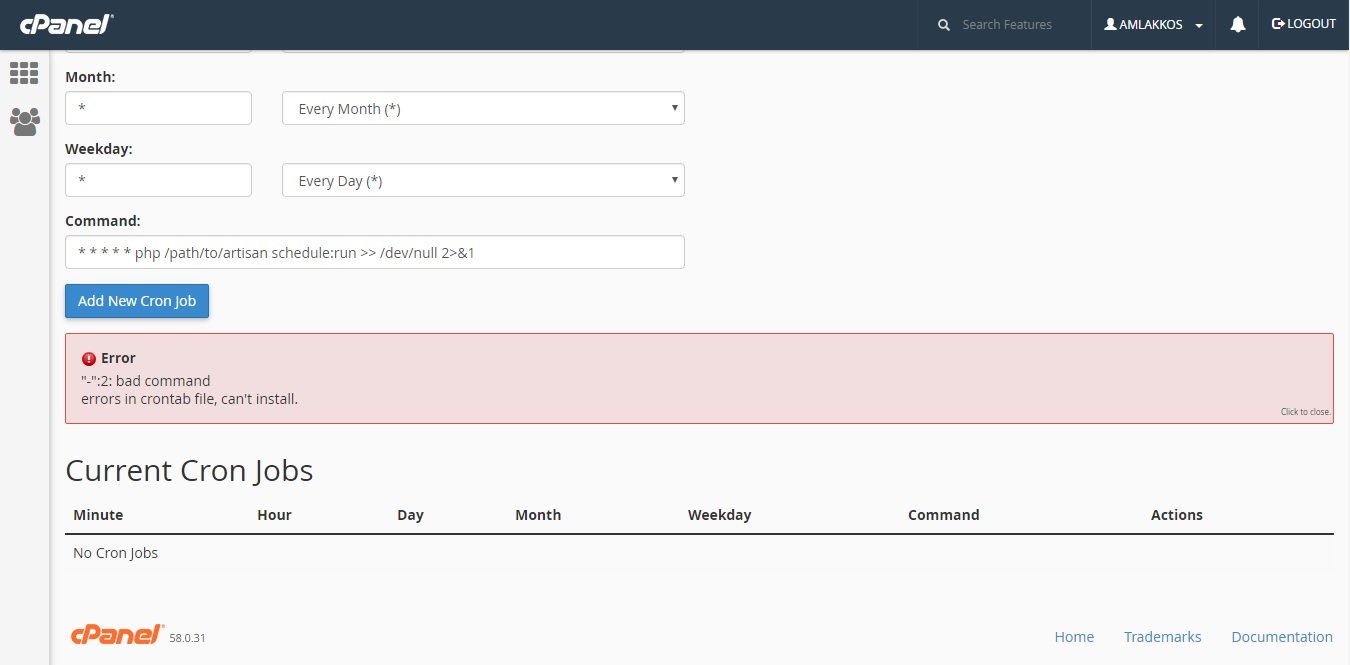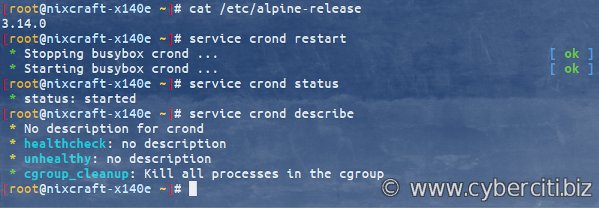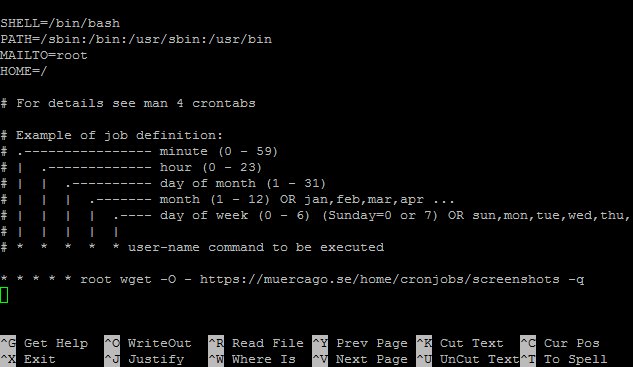Looking for a way to automate tasks every minute? Say hello to “cron every minute”! This powerful feature allows you to schedule scripts or commands to run at precisely one-minute intervals. Whether you’re a developer seeking efficiency or a system administrator needing precise timing, cron every minute is the solution you’re looking for. In this article, we’ll explore how to set up and make the most of this handy tool. So let’s dive in and discover how to harness the power of cron every minute in your workflow!
cron every minute
When it comes to automating tasks on a Unix-like operating system, one of the most powerful tools at your disposal is cron. Cron is a time-based job scheduler that allows you to execute commands or scripts at predetermined intervals. While the default setup for cron is to run tasks at the minute level, there may be cases where you need a higher level of precision, such as executing a command every single minute. In this article, we will explore the concept of “cron every minute” and delve into the techniques and considerations for implementing it effectively.
Understanding the Basics of Cron
Before diving into cron every minute, let’s have a quick overview of how cron works in general. Cron operates based on a configuration file known as the “crontab.” Each user on the system can have their own crontab file, which contains information about the scheduled tasks.
The crontab file consists of individual entries, each specifying a command or script to be executed and the schedule at which it should run. The schedule is defined using five fields: minute, hour, day of month, month, and day of week. By specifying the values or special characters for each field, you can create a wide range of scheduling options.
For example, a typical cron entry might look like this:
*/5 * * * * commandThis entry tells cron to run the “command” every five minutes. The asterisk (*) denotes a wildcard, meaning that any value is acceptable for that field. By selecting specific values or using other special characters, you can control the timing of the task.
The Limitations of Cron Every Minute
By default, cron is designed to execute tasks at the minute level. However, running a command every single minute using cron has certain limitations and considerations:
- System Resources: Executing a task every minute can put a significant burden on system resources, especially if the command or script is resource-intensive. It is crucial to ensure that your system can handle the workload.
- Task Duration: If a task takes more than a minute to complete, running it again immediately can lead to overlapping instances and potential conflicts. You need to carefully analyze the duration of your tasks and ensure that they finish within the allotted time.
- Logging and Output: When running a command every minute, the volume of log entries and output can quickly become overwhelming. It is important to have a strategy for managing and analyzing the logs and output effectively.
Techniques for Implementing Cron Every Minute
While running a command every minute with cron has its limitations, there are several techniques you can employ to make it work effectively:
1. Optimize Task Execution:
To minimize the strain on system resources, it is crucial to optimize the execution of your tasks. Consider the following strategies:
- Efficient Code: Write efficient code that executes quickly and doesn’t waste system resources.
- Resource Limits: Use tools like
ulimitto set resource limits for your tasks, preventing them from consuming excessive CPU, memory, or other resources. - Load Balancing: If possible, distribute the workload across multiple systems or instances to avoid overwhelming a single machine.
2. Implement Locking Mechanisms:
To prevent overlapping instances of the same task, you can implement locking mechanisms. These mechanisms ensure that a task is not executed again if a previous instance is still running. Some commonly used locking methods include:
- File Locking: Create a lock file before executing the task and check for its presence before starting a new instance. If the lock file exists, the new instance should wait or exit gracefully.
- Process ID (PID) Locking: Store the PID of the running task and check if a process with the same PID is still active before starting a new instance.
- Database Locking: Use a database table or record to store the task’s execution status and prevent concurrent execution.
3. Manage Logging and Output:
When running a command every minute, managing the resulting logs and output becomes crucial. Consider the following strategies:
- Logging Levels: Adjust the logging levels of your tasks to log only the essential information. This reduces the volume of logs and makes it easier to analyze them.
- Log Rotation: Implement log rotation techniques to limit the size and number of log files. This helps prevent disk space issues and allows for efficient log analysis.
- Output Handling: Determine how you want to handle the output generated by your tasks. You can direct the output to log files, send it via email, or discard it if not needed.
Monitoring and Troubleshooting Cron Every Minute
Monitoring and troubleshooting tasks scheduled to run every minute is essential to ensure their smooth operation. Here are some tips for effective monitoring and troubleshooting:
1. Monitoring Tools:
Utilize monitoring tools to keep track of the performance and status of your tasks. These tools can help you identify any issues or bottlenecks that may arise:
- System Monitoring: Use tools like Nagios, Zabbix, or Prometheus to monitor the system resources, such as CPU, memory, and disk usage.
- Application Monitoring: Implement application-level monitoring to track the execution time, errors, and other relevant metrics specific to your tasks.
2. Error Handling:
Implement robust error handling mechanisms to capture and handle any errors that occur during task execution:
- Error Logging: Log errors and exceptions to help diagnose issues. Include relevant information such as stack traces, error codes, and input data.
- Error Notifications: Set up notifications to alert you when errors occur. This ensures prompt action can be taken to resolve any issues.
3. Troubleshooting Techniques:
When troubleshooting tasks running every minute, follow these techniques to diagnose and resolve problems:
- Review Logs: Analyze the logs generated by your tasks to identify any errors or unexpected behavior. Look for patterns or recurring issues.
- Incremental Changes: If you made recent changes to your tasks or the environment, try undoing or rolling back those changes to see if the issue is resolved.
- Isolate Components: If possible, isolate individual components of your tasks and test them separately to identify which part is causing the problem.
In conclusion, running a command every minute using cron can be a powerful way to automate tasks on a Unix-like system. However, it comes with certain limitations and considerations that need to be addressed for effective implementation. By optimizing task execution, implementing locking mechanisms, managing logging and output, and monitoring and troubleshooting, you can ensure the smooth operation of tasks scheduled to run every minute. With careful planning and attention to detail, cron every minute can streamline your automation processes and enhance productivity.
How to set crontab to execute every 5 minutes
Frequently Asked Questions
What is the purpose of running a cron every minute?
The purpose of running a cron job every minute is to automate repetitive tasks that need to be performed at regular intervals. By scheduling a cron job to run every minute, you can ensure that a specific command or script is executed automatically without requiring manual intervention.
How do I set up a cron job to run every minute?
To set up a cron job to run every minute, you need to edit the crontab file. Open the terminal and type “crontab -e” to open the crontab file. Then, add the following line to the file:
* * * * * command_to_be_executed
Replace “command_to_be_executed” with the actual command or script you want to run. Save the file, and the cron job will be set to run every minute.
Can I specify a specific time range for a cron job to run every minute?
No, it is not possible to specify a specific time range for a cron job to run every minute. The cron system is designed to run a job at regular intervals, and specifying a time range goes against this principle. If you need to run a cron job only during a specific time range, you may need to consider using other methods or scheduling multiple cron jobs with different time intervals.
What are some use cases for running a cron job every minute?
Running a cron job every minute can be useful in various scenarios, such as:
- Updating real-time data or statistics on a website
- Checking for new email messages or notifications
- Running a monitoring script to check server health
- Synchronizing data between different systems
These are just a few examples, and the possibilities are endless depending on your specific needs.
Is there any risk of performance issues when running a cron every minute?
Running a cron job every minute can potentially put a strain on system resources, especially if the task being performed is resource-intensive. It is essential to consider the impact on system performance and ensure that the server can handle the load. If necessary, you can optimize the script or command being executed or adjust the cron schedule to a longer time interval.
Can I schedule a cron job to run every minute only on specific days?
Yes, you can schedule a cron job to run every minute on specific days by using additional parameters in the cron schedule. For example, if you want the cron job to run every minute only on Mondays and Wednesdays, you can modify the crontab entry as follows:
* * * * 1,3 command_to_be_executed
In this example, “1,3” represents Monday and Wednesday. Adjust the numbers based on the desired days of the week, with Sunday being 0 and Saturday being 6.
Final Thoughts
The cron command is a powerful tool for automating tasks on a Unix or Unix-like system. By using the cron syntax “*/1 * * * *”, you can schedule a task to run every minute. This allows for the continuous execution of scripts or commands, providing real-time updates and actions. With cron every minute, you can ensure that critical processes run smoothly and without delay. Whether it’s monitoring system performance, updating data, or triggering specific actions, cron every minute offers the flexibility and reliability you need for efficient task scheduling.




